Crypto will fix the music industry
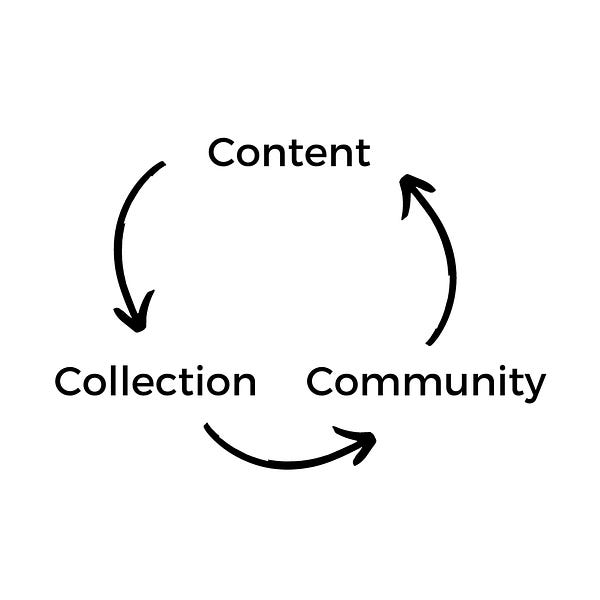
Dear Bankless Nation,
Your favorite artist isn’t earning much from major streaming platforms like Spotify.
An artist might not even earn a month’s rent for a song that has a million views. That’s crazy. Worse, with the pandemic, artists have been stripped of their primary source of income: concerts.
Content creators bring joy and happiness to millions of lives. Shouldn’t they be getting paid for that value?
What if we built a system that allows artists to thrive in the digital world?
Cooper and RAC think crypto can do this. These technologies can empower creators beyond anything possible today.
Here’s how.
- RSA
WRITER WEDNESDAY
Bankless Writers: Cooper Turley, crypto strategy lead at Audius & Andre ‘RAC’ Anjos, award-winning grammy artist.
Crypto Will Fix the Music Industry
It's no secret that music plays a prominent role in many of our lives. From Beethoven to Bach, Skrillex to Post Malone, the infinite number of songs created on a piano’s 88 keys is truly something to marvel at.
But what many listeners don’t know is that artists are struggling to make ends meet—now more than ever.
Streaming — the primary source of income for artists in a post-pandemic world — is barely profitable, meaning royalty rates amount to just a few thousand dollars per million plays on Digital Service Providers (DSPs) like Spotify.
Most ‘successful’ artists are guided by major labels that often take between 50-80% of royalties, leaving less than half of the income before distributors and managers take their cut. This means artists only capture 12% of music revenue.
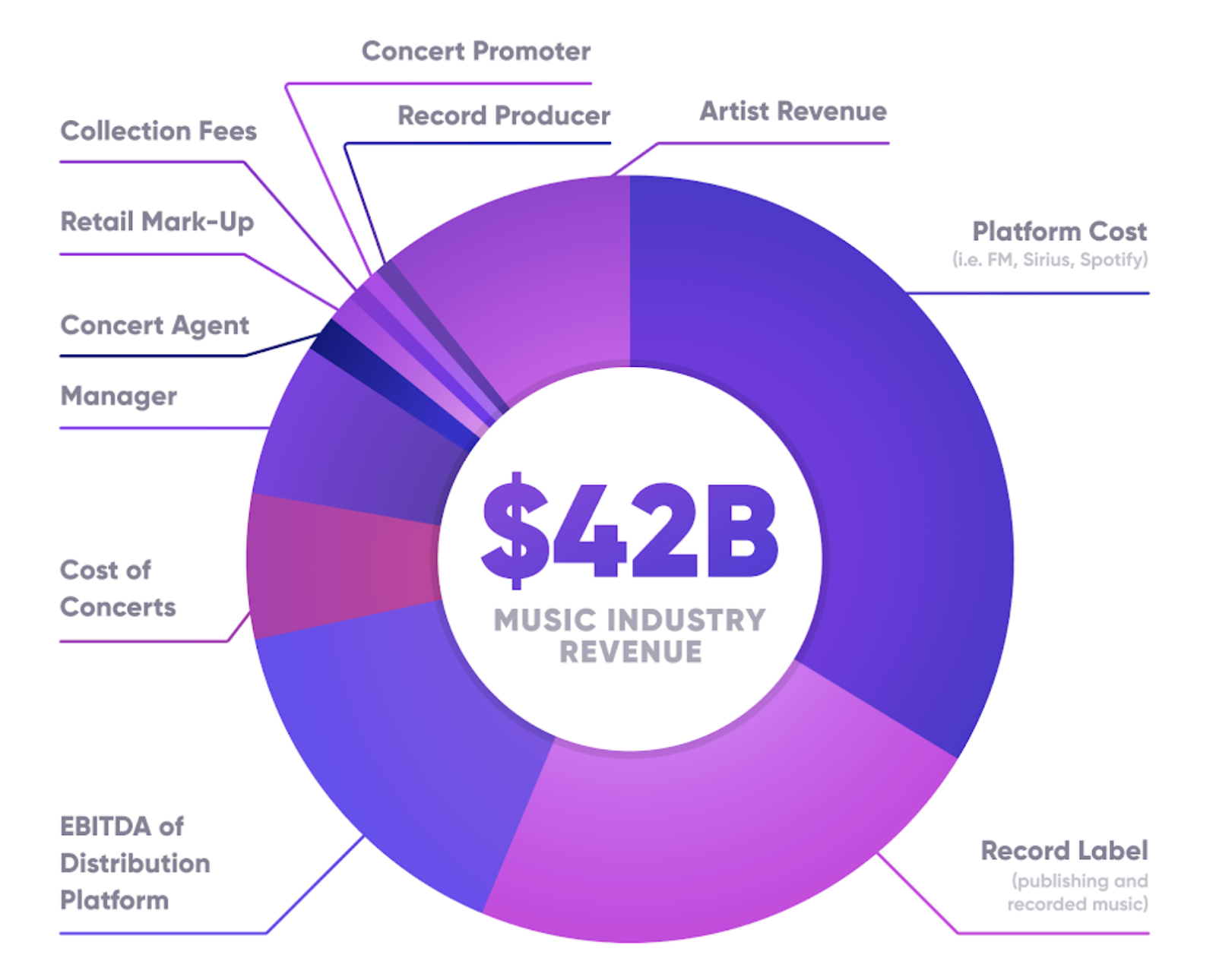
In fact, ~80% of income from music is said to come from touring—a revenue stream which has been quickly shelved as a result of the pandemic. This leaves artists with a lack of reliable income and an illusion of data to build new fans. Outside of the inability to reach an entire fanbase without paying for ads on Instagram, artists struggle to draw actionable insights from analytics on Spotify that really only make for good info to show your mom.

So, where do we go from here?
How can we design systems for artists to get the maximum value out of their creations, and for creatives to feel comfortable and empowered by the platforms they use?
Because according to grammy-winning artist RAC, recorded music should be enough.
Enter The Creator Economy
It’s said that an artist can survive (and in fact thrive) off just 100 true fans—or fans who purchase or engage in each and every piece of content that artist releases. Now, a special class of artists are taking this idea of ‘true fans’ to the extreme.
It’s the emergence of the Creator Economy: a growing trend for creatives to form deep relationships with their community and allow them to share in their collective growth.
“New digital platforms enable people to earn a livelihood in a way that highlights their individuality. These platforms give providers greater ability to build customer relationships, increased support in growing their businesses, and better tools for differentiating themselves from the competition. In the process, they’re fueling a new model of internet-powered entrepreneurship.”
- Li Jin, The Passion Economy
And, as you can imagine, this is exactly what web3 is here to do. It’s time to empower musicians. It’s time for them take take control and create a flywheel around themselves, rather than the platforms they use.
Here’s How
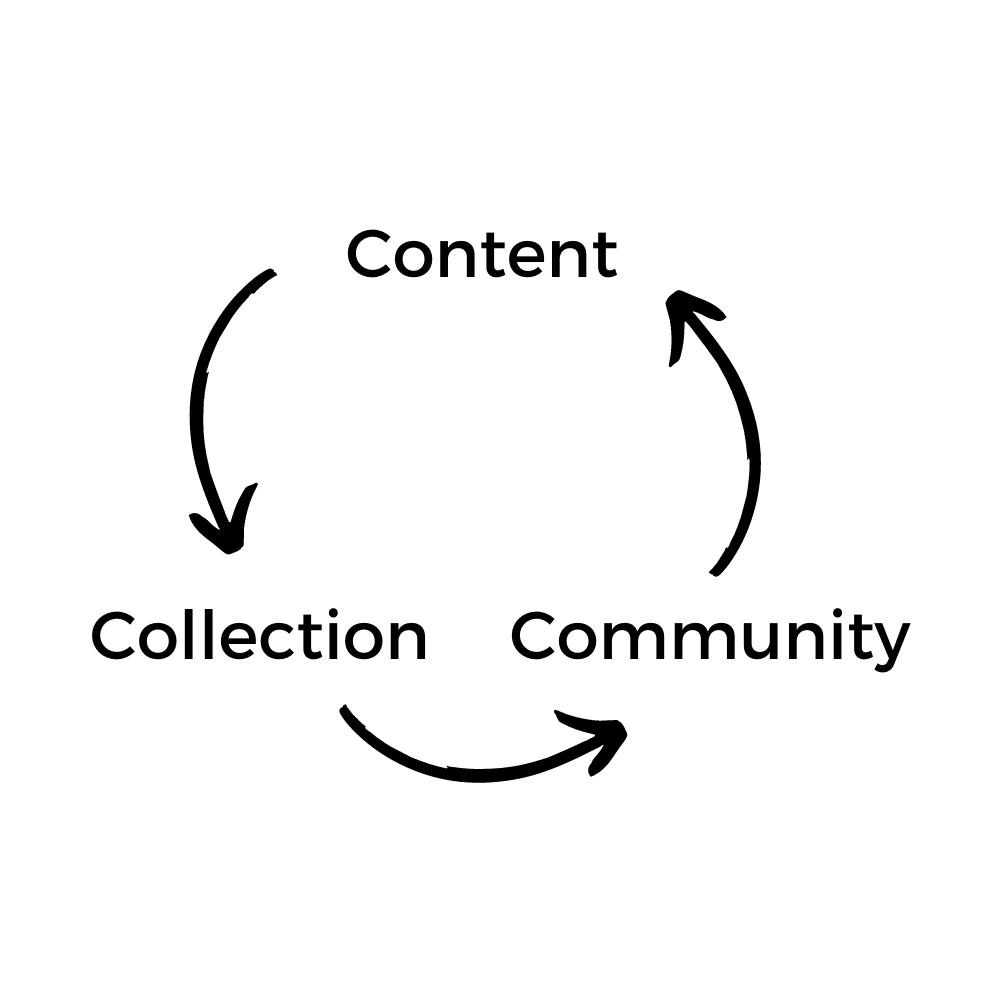
Content
At the foundation of all artist projects is their music. It’s the content they create.
But, who’s to say that every piece of recorded music should cost the same price, or even cost anything at all?
No two pieces of content are the same. This is especially true for music. And this decision for creators to have deeper control over how they choose to monetize their content is exactly where smart contract systems come into play.
With web3 platforms, artists will be able to set customizable streaming rates, meaning artists can choose exactly how much they want to charge for any piece of content.
Whether it be $0.05 to listen once, $10 to listen in perpetuity or free to listen so long as you’re an avid listener, musicians can start experimenting with new royalty schemas while capturing the lion’s share of income along the way.
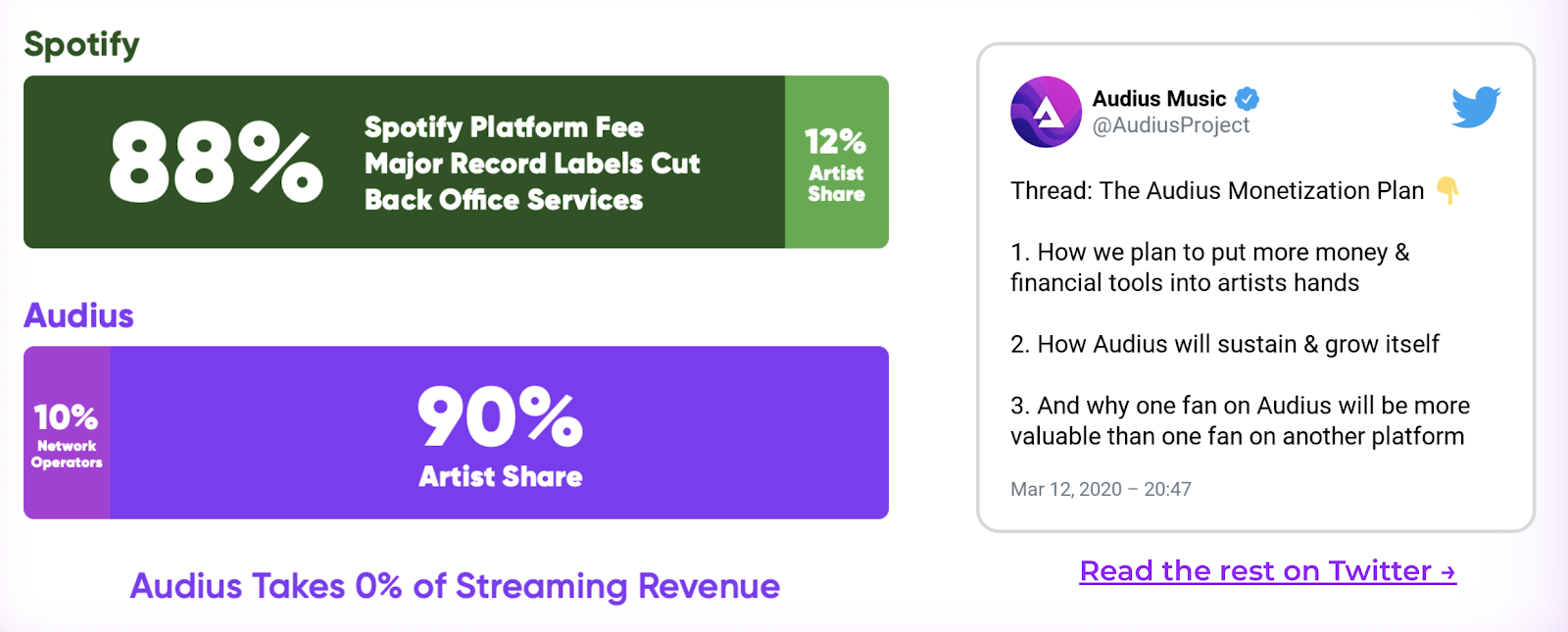
Couple this with the ability for micropayments and a system where fans make payments directly to the artist they listen to, it’s natural to see a future in which the peer to peer nature of web3 directly benefits the creators of tomorrow.
Even though pay-to-listen is the most obvious form of token-permissioned access, artists can start experimenting with geographic and time-specific settings to give creative works new settings and playback features—all of which add to the allure of exclusive content.
Speaking of exclusive content, you’ve may have heard of these things called NFTs.
Collections
Thanks to digital provenance, we can finally give content scarcity on the internet. This trend, coined as ‘CryptoMedia’ by Zora - is a medium for anyone on the internet to create universally accessible and individually own-able hypermedia.
This is best illustrated by content which has both a media component and a market.
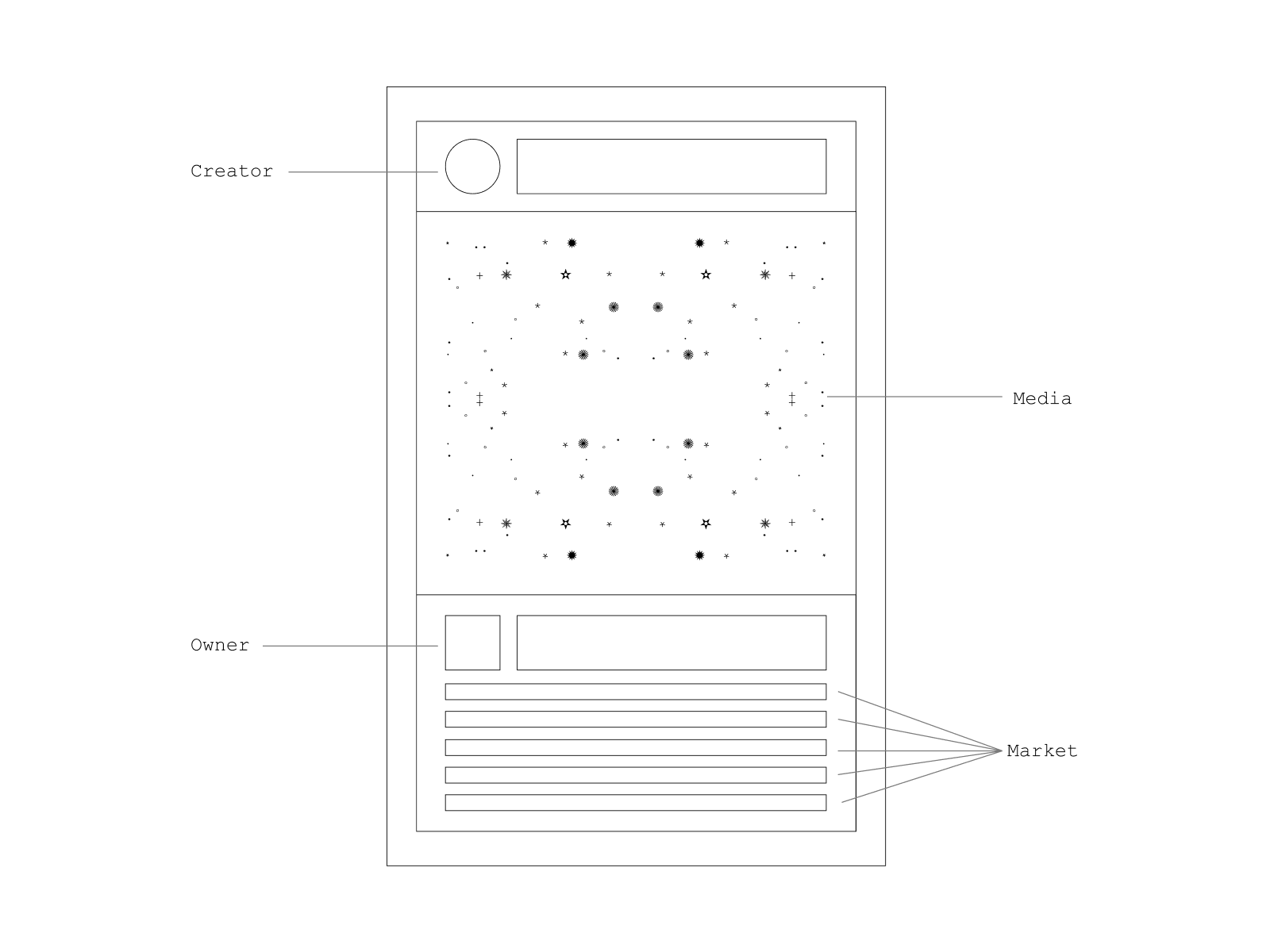
Combine these primitives together and we quickly see content becoming collectible.
The most prominent example is AudioNFTs. These are audio-visual digital collectibles sold in scarce quantities on NFT marketplaces like SuperRare. RAC broke SuperRare’s primary sale record earlier this year through the sale of Elephant Dreams, selling for a whopping 70 ETH to renowned NFT collector Max Stealth.
But, he’s not alone.
Digital merchandise is a new trend, best popularized by platforms like Nifty Gateway and Blockparty offering exclusive drops to fans using USD onramps.
Even famous EDM artist Deadmau5 started his own digital collectible line ‘RAREZ’ in partnership with Wax and Emanate, giving fans the ability to buy ‘packs’ with the ability to earn NFTs of varying rarities.
“(RAREZ) is an experimental new music NFT brand that has been created for virtual music industry merchandise and scarce music releases” states the announcement post.
Now, musicians must find the middle ground between scarce and accessible, ensuring that their fans can participate in this new frontier without being boxed out by whales.
And why might they want to participate? One word, community.
Community
Discord, Twitch, Patreon. These household names are some of the ways musicians are adjusting to the increasingly digital world. They’re spending dozens of hours per week building communities, all with the intention to better connect their fans to one another around the artist’s brand.
We know that fans love to share and consume content, and we now know that fans love to collect digital merchandise. Community is the connective tissue that keeps the flywheel going.
In order for the creator economy to work, fans need a home to share and engage with their peers in a trusted, safe environment. This is where social tokens come into the fold.
RAC recently created $RAC. It’s a community token earned by fans by supporting the project on the above mentioned mediums. The token grants access to exclusive Discord channels and offers early access to drops and unreleased content.
“I see this as a meta-layer on top of all social media platforms.” said RAC “It's a true fan club, platform agnostic and flexible to integrate with anything in the future.“
Tie it all together and you’ve got yourself the perfect recipe for 100 true fans.
An artist releases content, permissions who can listen to it, and for how much. They expand the likeness of that content by creating a digital collectible universe around it. They provide fans a home to engage and geek out over that universe in exclusive chat rooms.
This is the foundation for creator economies, and it’s all powered by web3.
A Curated Future
But, let’s not forget about the people who make this all possible: the fans.
In the spirit of the ownership economy, the future of music will give fans direct capabilities to share in the upside of the projects they support.
Community Funding
Similar to how liquidity mining is used to bootstrap capital for DeFi projects, it's highly likely that communities will band together to seed working capital for albums. This starts with input on how many copies of a piece of work an artist *should* release, and quickly evolves to shared ownership over the income generated by that piece of work.
I’m personally most excited for Catalog, a digital record store allowing artists to release full tracks as NFTs via an open market for music. For the first time, we’ll see what it looks like to release a track completely on web3 rails, and allow the beauty of Ethereum to give creators means to share that income with early supporters.
Curation Clout
These effects compound when we allow fans to stake to their favorite artists and individual tracks to boost their exposure. In return, they earn a portion of future royalties along the way. We can envision a system where being ‘early’ to a now viral act is no longer just a social flex, rather a provable on-chain action that comes with direct financial benefits.
And hey, maybe they earn some social tokens too. All I know is once the flywheel of being able to earn from the music you promote and ‘own’, there’s no going back.
What’s Next
The puzzle pieces are all there. Now it’s time to put them all together.
I’d like to use this time to put out an open invitation to all those building a better future for music using web3. This sector is one that has an infinite number of potential applications, and one that is quickly seeping into every conversation among managers, labels and artists alike.
To those who are here this early, I commend you for your commitment to innovation.
It’s about time that music was fairly valued and it’s up to us to make it happen.
Until then, stay hungry and remember that the best time to start your very own creator economy is today.
Action steps
Identify how web3 platforms can empower creators
Read our previous pieces on the potential for social tokens & creator economies:
Author Bio
Cooper leads crypto strategy at Audius, an artist-owned music streaming platform. He also manages tokens for popular creators, works as the editor for DeFi Rate, is an active contributor to The Defiant, and frequently works with teams on governance & token economic design through a collective called 🔥_🔥 (Fire Eyes DAO).